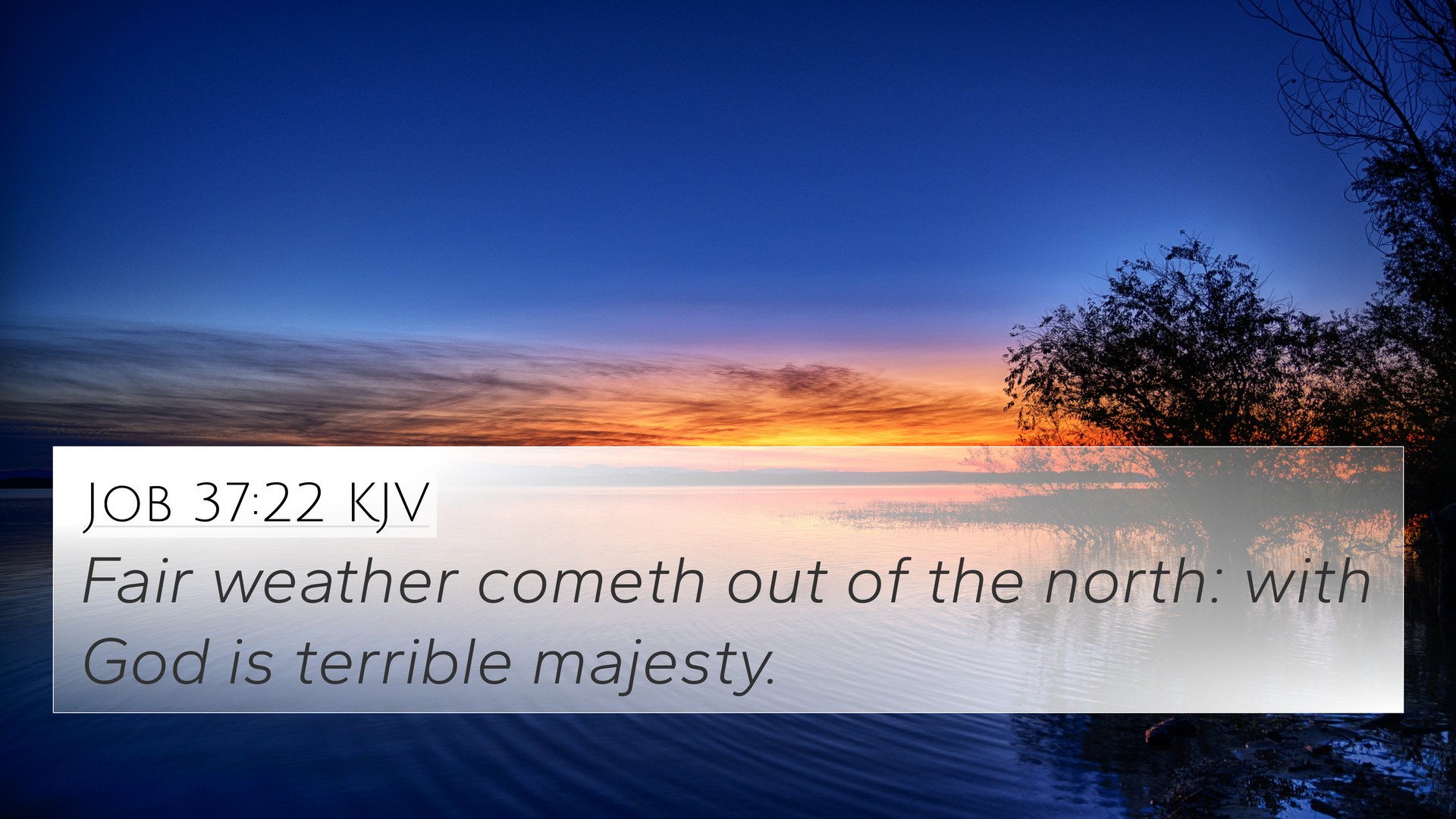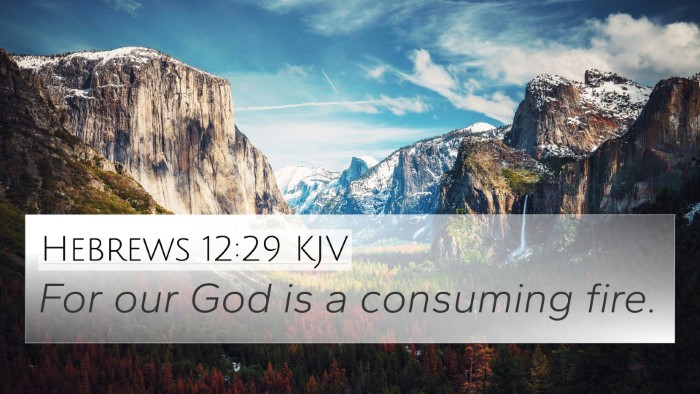Old Testament
Genesis Exodus Leviticus Numbers Deuteronomy Joshua Judges Ruth 1 Samuel 2 Samuel 1 Kings 2 Kings 1 Chronicles 2 Chronicles Ezra Nehemiah Esther Job Psalms Proverbs Ecclesiastes Song of Solomon Isaiah Jeremiah Lamentations Ezekiel Daniel Hosea Joel Amos Obadiah Jonah Micah Nahum Habakkuk Zephaniah Haggai Zechariah MalachiJob 37:22 Similar Verses
Job 37:22 Cross References
Fair weather cometh out of the north: with God is terrible majesty.
Uncover the Rich Themes and Topics of This Bible Verse
Listed below are the Bible themes associated with Job 37:22. We invite you to explore each theme to gain deeper insights into the Scriptures.
Job 37:22 Cross Reference Verses
This section features a detailed cross-reference designed to enrich your understanding of the Scriptures. Below, you will find carefully selected verses that echo the themes and teachings related to Job 37:22 KJV. Click on any image to explore detailed analyses of related Bible verses and uncover deeper theological insights.

Psalms 104:1 (KJV) »
Bless the LORD, O my soul. O LORD my God, thou art very great; thou art clothed with honour and majesty.
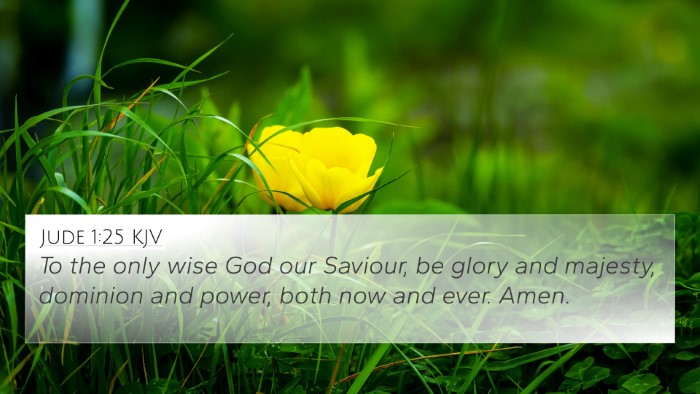
Jude 1:25 (KJV) »
To the only wise God our Saviour, be glory and majesty, dominion and power, both now and ever. Amen.
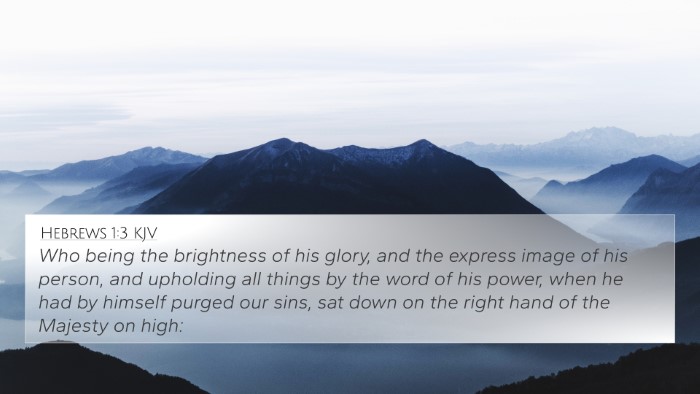
Hebrews 1:3 (KJV) »
Who being the brightness of his glory, and the express image of his person, and upholding all things by the word of his power, when he had by himself purged our sins, sat down on the right hand of the Majesty on high:
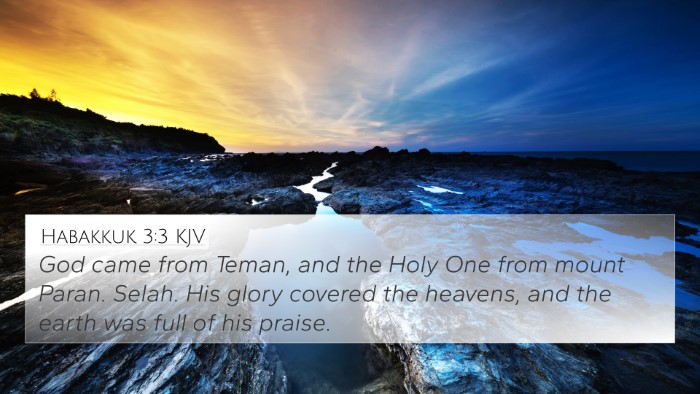
Habakkuk 3:3 (KJV) »
God came from Teman, and the Holy One from mount Paran. Selah. His glory covered the heavens, and the earth was full of his praise.
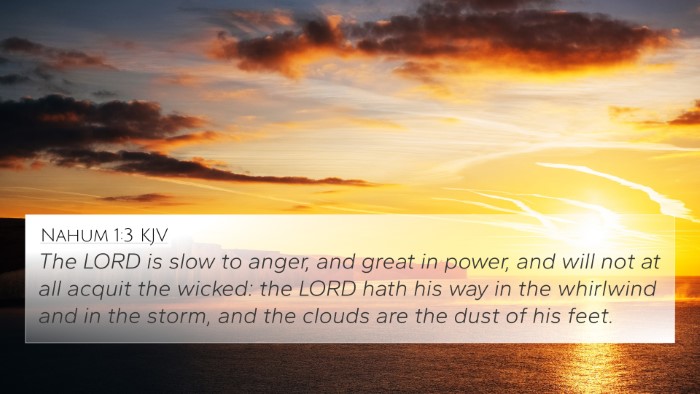
Nahum 1:3 (KJV) »
The LORD is slow to anger, and great in power, and will not at all acquit the wicked: the LORD hath his way in the whirlwind and in the storm, and the clouds are the dust of his feet.
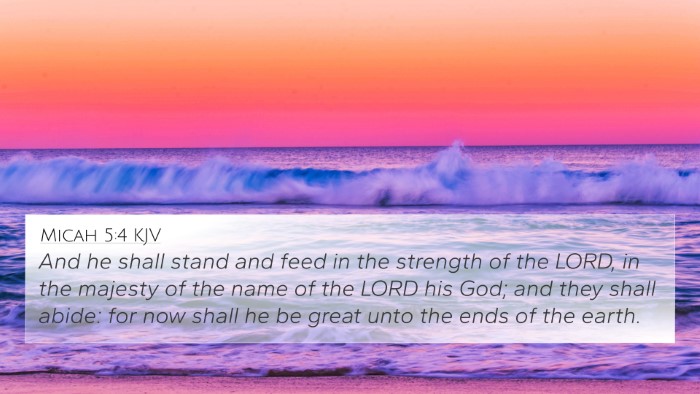
Micah 5:4 (KJV) »
And he shall stand and feed in the strength of the LORD, in the majesty of the name of the LORD his God; and they shall abide: for now shall he be great unto the ends of the earth.
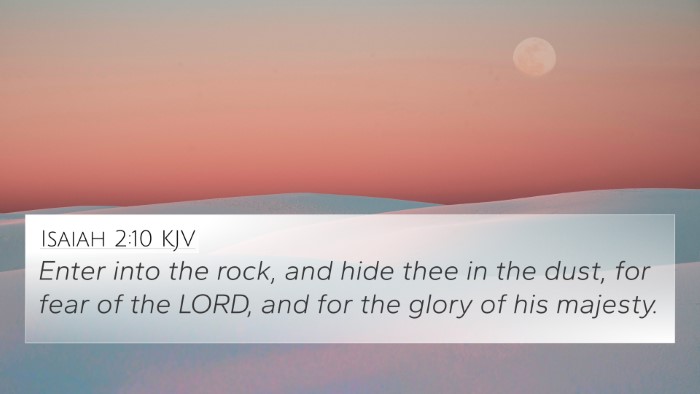
Isaiah 2:10 (KJV) »
Enter into the rock, and hide thee in the dust, for fear of the LORD, and for the glory of his majesty.

Isaiah 2:19 (KJV) »
And they shall go into the holes of the rocks, and into the caves of the earth, for fear of the LORD, and for the glory of his majesty, when he ariseth to shake terribly the earth.
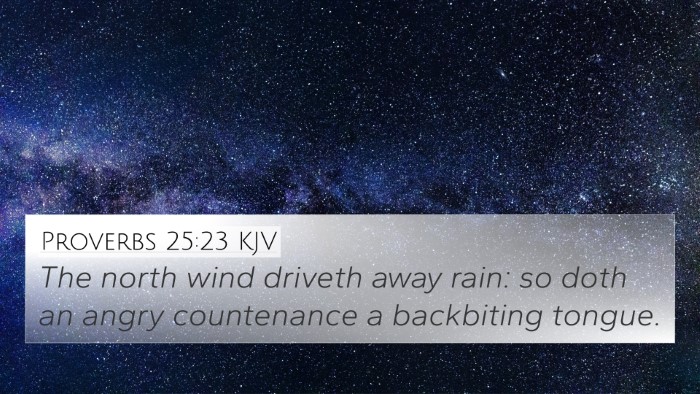
Proverbs 25:23 (KJV) »
The north wind driveth away rain: so doth an angry countenance a backbiting tongue.

Psalms 66:5 (KJV) »
Come and see the works of God: he is terrible in his doing toward the children of men.
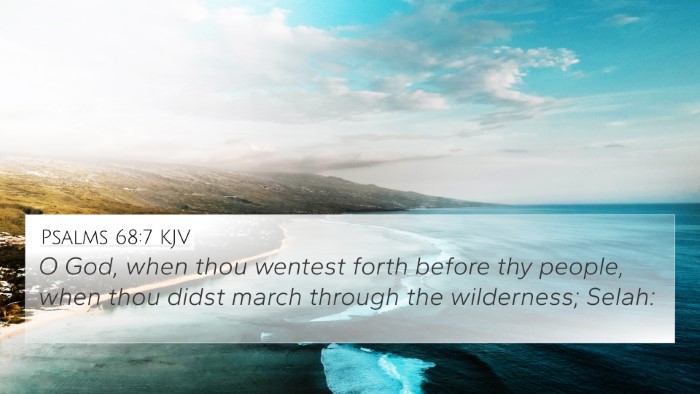
Psalms 68:7 (KJV) »
O God, when thou wentest forth before thy people, when thou didst march through the wilderness; Selah:
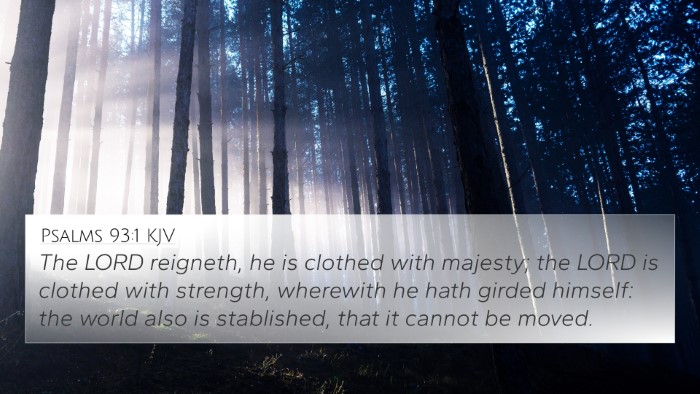
Psalms 93:1 (KJV) »
The LORD reigneth, he is clothed with majesty; the LORD is clothed with strength, wherewith he hath girded himself: the world also is stablished, that it cannot be moved.
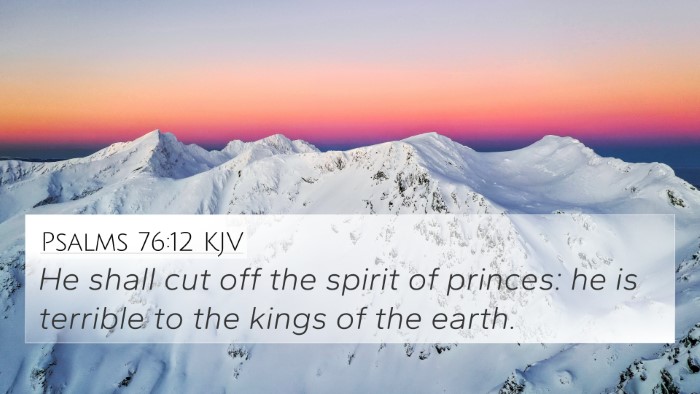
Psalms 76:12 (KJV) »
He shall cut off the spirit of princes: he is terrible to the kings of the earth.

Job 40:10 (KJV) »
Deck thyself now with majesty and excellency; and array thyself with glory and beauty.

1 Chronicles 29:11 (KJV) »
Thine, O LORD is the greatness, and the power, and the glory, and the victory, and the majesty: for all that is in the heaven and in the earth is thine; thine is the kingdom, O LORD, and thou art exalted as head above all.
Job 37:22 Verse Analysis and Similar Verses
Understanding Job 37:22
Contextual Overview
Job 37:22 states, "Fair weather cometh out of the north: with God is terrible majesty." This verse falls within the narrative of God's response to Job through the speech of Elihu, emphasizing God’s power and the awe-inspiring nature of His creation.
Commentary Insights
-
Matthew Henry:
Matthew Henry notes that this verse reflects the grandeur and majesty of God, especially evident in the natural phenomena surrounding us. He emphasizes that the beauty of fair weather symbolizes divine favor and the stability it brings to the world.
-
Albert Barnes:
Albert Barnes interprets this verse as highlighting the mysterious operations of God in nature, particularly in the way fair weather is a manifestation of His will. He discusses how the north wind can represent both destruction and blessing, suggesting the dual nature of God's providence.
-
Adam Clarke:
Adam Clarke's commentary points out that “terrible majesty” signifies the awe one should feel in the presence of God. He suggests that this majesty is displayed in the stability and unpredictability of weather, indicating God's sovereignty over all creation.
Theological Implications
This verse motivates readers to reflect on God's omnipotence and His authority over natural occurrences. It establishes a connection between earthly phenomena and divine governance, urging humility in the face of God's vast creation.
Cross-References
Several scripture references can deepen the understanding of Job 37:22 and its message:
- Psalms 104:4 - "Who maketh winds his angels; flames of fire his ministers."
- Isaiah 40:12 - "Who hath measured the waters in the hollow of his hand?"
- Psalms 29:3 - "The voice of the Lord is upon the waters: the God of glory thundereth."
- Job 38:22 - "Hast thou entered into the treasures of the snow?"
- Matthew 8:27 - "Even the winds and the sea obey him."
- Romans 1:20 - "For the invisible things of him from the creation of the world are clearly seen."
- Job 36:26 - "Behold, God is great, and we know him not."
Connections Between Bible Verses
The connections drawn through these cross-references underline the thematic continuity in the Bible regarding God's control over nature and the reverence due to Him. These passages reveal a consistent message about divine authority and the natural order.
Practical Application and Reflection
For those studying this scripture, it warrants contemplation on the natural world as a testimony of God’s power. When observing fair weather, it may serve as a reminder of the stability and peace that God provides, prompting gratitude and reverence.
Conclusion
Job 37:22 offers a profound insight into the relationship between God and nature. By considering the commentaries and related scriptures, one can appreciate the theological depth of this verse, encouraging a deeper understanding of Scripture through cross-referencing and thematic exploration.
